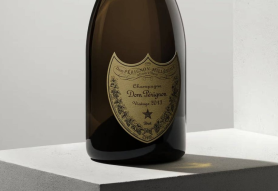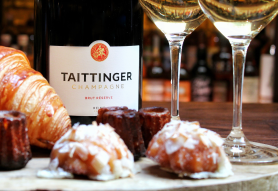The Founding of Yamazaki: Japan's Whisky Pioneer
The Yamazaki Distillery is nothing less than the birthplace of Japanese whisky. It was founded in 1923 by Shinjiro Torii, the architect of the Suntory brewing and distilling empire. Having previously worked as a pharmaceutical wholesaler, then a winemaker, Shinjiro switched to whisky making ambitiously believing that he could create the Japanese market for fine malt whisky. But not even he would have dared to guess at the success his company, and Yamazaki, would achieve.
Early Success and the Birth of Single Malts
Seeking to produce whiskies that would be acceptable to the Japanese palate, Shinjiro’s company released its first product, Suntory ‘White Label’ – or Shirofuda – Whisky, in 1929. Its reception was muted. The first signs of success came in the 1930s with the release of Kakubin. This blended whisky, named after its distinctive tortoise shell-patterned bottles, would become one of the best-loved whiskies in Japan.
For most of its early life, the Yamazaki Distillery produced whiskies for use in Suntory proprietary blends. The destiny-shaping change came for the distillery in 1961, when Shinjiro’s son, Keizo Saji, was installed as Suntory’s second president – and Yamazaki’s second master blender.
It was Saji who pioneered single malt whisky at Yamazaki. The first release came in 1984: Suntory Pure Malt Whisky Yamazaki (the wording was changed to ‘Single Malt Whisky’ in 2004). This was followed by Yamazaki 18 Years Old in 1992. While these single malts were well received, they gave little hint of the reverence with which Yamazaki would come to be perceived. For this, we must look to the early years of the 21st century. This marked the start of a period of shortages in stocks of aged whisky which prompted the first release of no-age-statement (NAS) whiskies. While controversial, these became a popular way to fuel a new interest in the whisky industry. Yamazaki fuelled the trend by releasing both the Yamazaki Distiller’s Reserve and the Yamazaki Sherry Cask 2013.
In 2015, Yamazaki Sherry Cask 2013 won the prestigious Whisky of the Year award in Jim Murray's Whisky Bible – becoming the first Japanese whisky to earn this accolade in the guide’s history. Though many other notable awards were conferred, this one was a lightning bolt moment. Yamazaki shot to fame almost overnight, becoming a hallowed name among whisky aficionados around the globe.
Craftsmanship and Nature: The Secrets Behind Yamazaki’s Distinction
But what makes Yamazaki whisky so distinctive? The distillery founder Shinjiro Torii was wont to offer a simple definition: ‘craftsmanship and nature in harmony’. Meticulous attention to detail and commitment to quality undoubtedly play their part, but what really marks Yamazaki whiskies out is the geographical site (and consequently its water quality) and the preferred use of local mizunara oak for maturation casks.
Shinjiro Torii chose to build the Yamazaki Distillery on the outskirts of Kyoto, at the confluence of three rivers: Katsura, Uji and Kizu. The soft, mineral-rich waters flowing into these rivers from their source of Mount Tennozan are ideal for producing fine whisky. This site also benefits from a favourable, humid subtropical climate, which is favourable for the maturation of whisky in the distillery. In short, the Yamazaki site provides the optimum conditions for producing fine malt whisky.
Then there is the mizunara oak. Originally used because of the shortage of American white oak casks after the Second World War, this native Japanese oak has, ironically, become now the most prized for whisky maturation – in particular for finishing whiskies. Mizunara oak (Latin name: Quercus crispula) is notoriously difficult to use, both for making whisky barrels and for maturing whisky. Its high water content means that it takes as long as three years to dry out and assemble into barrels. It’s much more porous than American oak, meaning greater levels of evaporation. It also takes far longer to mature whisky in mizunara oak than in more conventional types of oak. Leave the whisky for too short a time and the flavours will be too sharp intense. But with patience, mizunara’s signature notes of sandalwood, incense, coconut and citrus shine through.
Which Yamazaki bottles should you look out for? The distillery is best known for its core range – a 12-year-old, an 18-year-old and a 25-year-old – but look out also for the distillery’s special-edition and cask-finish releases. NAS bottles are perhaps more accessible and are a perennially popular choice among Japanese whisky lovers.
Collecting Yamazaki: Investment-Grade Japanese Whisky
Yamazaki whisky has benefited hugely from the boom in whisky as an investment commodity. Investment-grade bottles from the distillery will inevitably increase in value owing to the scarcity and limited nature of older whiskies at the distillery. Over the past decade or so, the value of Yamazaki’s core range of age-statement single malts has increased exponentially, while rare, extra-aged releases have become some of the most sought-after bottles ever produced.
A 50-year-old Yamazaki expression, first released in 2005 (at the time the oldest Japanese single malt ever produced), has become one such ultra-rare and eye-wateringly expensive bottle. But even this has been surpassed: the most expensive bottle of Yamazaki single malt ever sold was a 55-year-old which sold for around £800,000 at a Bonhams auction in 2020.
Yamazaki was opened in 1923 as Japan`s first commercial whisky distillery & is based in Shimamoto, Osaka Prefecture.
"This one was matured in sherry casks. The nose is very woody, in a nice way, with some varnish, turpentine. A beautiful balance. Some very soft tannins… Extremely oaky but masterfully crafted. The mouth is superbly balanced, with lots of orange juice and spices. Creamy yet nervous, with all sorts of fruit syrups and jams. Besides, the finish is very long. I loved this one: 90 points."




























